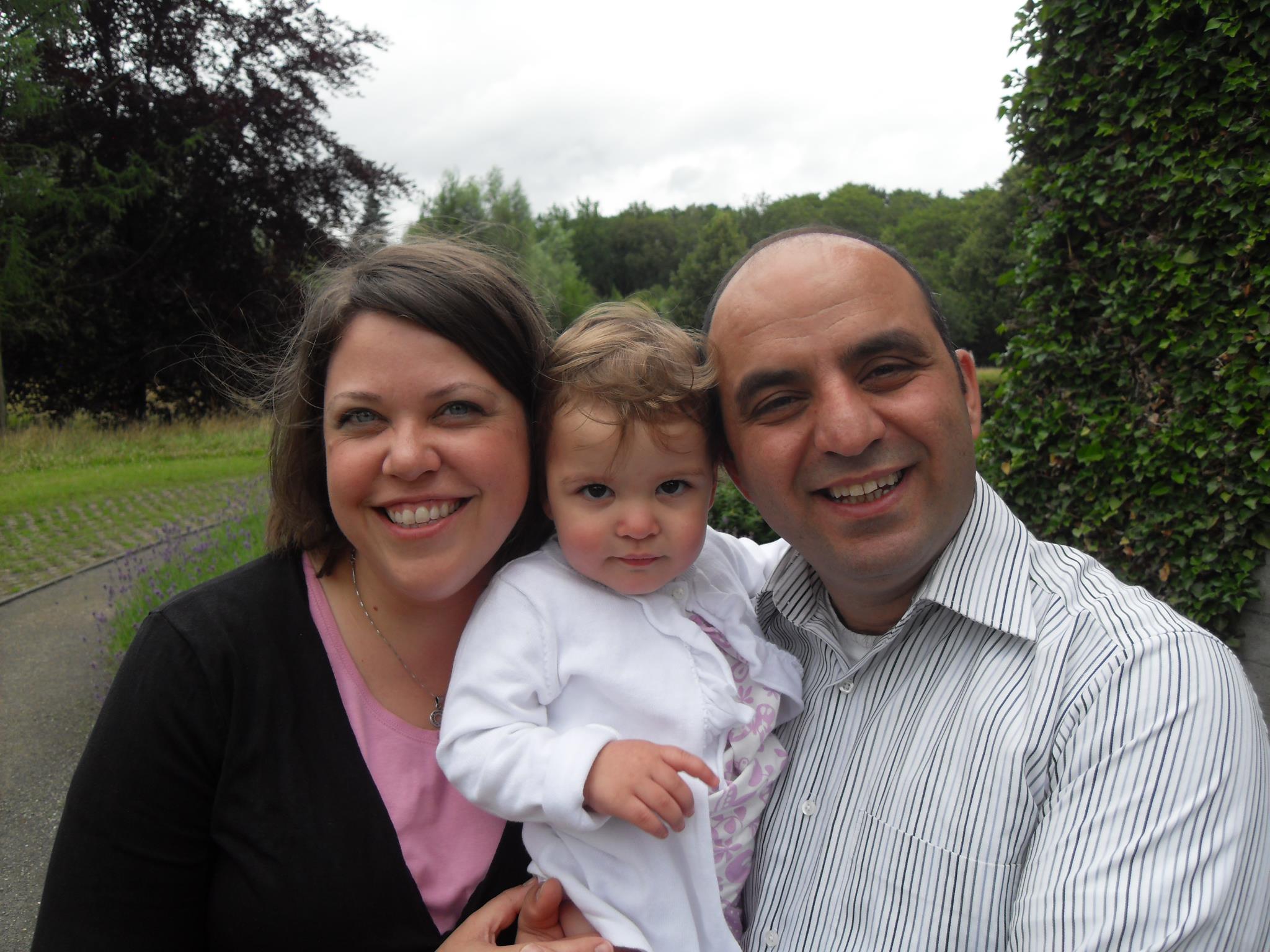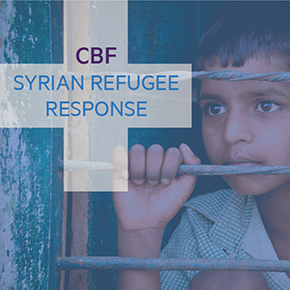By Ashleigh Bugg
Children from more than 30 ethnicities play on the winding stone streets of Antwerp, Belgium. Some don religious head coverings while others wear their hair in intricate braids as they run through the fountains at a nearby park. Despite the violence they have witnessed, they laugh and dance alongside the sailing ships that sit in Europe’s second largest harbor.
“Over 40 percent of school children in Antwerp are Muslim,” said Cooperative Baptist Fellowship field personnel Janée Angel. “That’s not counting the other Arabic peoples who may be Christian or other faiths.”
For the past 10 years, Janée has been in Belgium, living and working with Arabic-speaking people. Since the growing violence in Syria and ongoing violence in the Middle East, many immigrants have found refuge in countries like Belgium and Holland. However for many refugees, the horror is not over.
“War has been a part of our life for the past four years,” Janée said, motioning to her young daughter Phoebe who sits beside her. “For her entire life, war has been there. Phoebe hasn’t had a Christmas or holiday where her father wasn’t worried about his siblings in Syria.”
Janée’s husband, Hary, is a native of Syria and currently serves in Antwerp, preaching and working alongside Janée as they plant churches. They lead the only Protestant Arabic church in Belgium outside the metropolis of Brussels. Their church is one of just three Protestant Arabic churches in the entire nation.

Janée’s ministry has adjusted as the refugee situation worsens without signs of resolution. According to the Syrian Observatory for Human Rights, more than 320,000 people have died in the conflict since 2011. Nearly 12,000 of these deaths were children.
“I’ve given up hope of ever visiting Hary’s family in Syria,” said Janée, whose husband still has family members trapped in the area.
“Hary’s family can no longer afford bread to put on the table. Every day Hary’s sister-in-law walks four kilometers to gather a couple of buckets of drinking water. We’ve been working to get his family out of the country but the visa process is difficult,” Janée said.
As the conflict heightens, Janée explained the war has become a part of her daily reality.
“It’s different when you’re in the middle of it. It’s not just “those people” over there. When you have family in the heart of danger, war becomes much more personal.”
Deaths and casualties aren’t the only effects of the constant violence. People are also forced from their homes. With more than half of Syrians displaced, many of the refugees have nowhere to go, seeking refuge in neighboring countries like Lebanon, where many face anti-immigrant sentiment and do not receive full rights and benefits. Others make the dangerous trek to Europe where the population is not always friendly.
In countries like France, resources for refugees can be scarce with the gap between immigrants and the majority population apparent. In some neighborhoods, migrants camp out on mattresses in the streets, less than 100 feet from young Parisians enjoying crepes at outdoor cafes.
For Janée and Hary, reaching out to refugees and immigrants is a vital part of their work. She maintains the importance of understanding the Arabic-speaking world.
“I think at this point it’s about awareness. There’s this idea about ‘those Muslims’ over there — that they’re terrible people. It’s very blind to the reality of the situation.”
Janée and Hary do not just serve Syrians. Their small congregation includes people from Iraq, Lebanon, Egypt, Morocco, Turkey, Iran and Saudi Arabia in addition to Syria.
“When I first arrived here I struggled to understand the dynamics of the Muslim world. There are so many different groups and languages and sects,” Angel said. “I had to make a people chart.”
Janée and Hary work with various groups including Arabs, Assyrians, Kurds, Chaldeans and Aramaic people. Some of these groups have been at odds with each other for centuries, and it can be a challenge to achieve harmony in the church. Some members are former Muslims, a fact that upsets some Christian members. Janée upholds the necessity for Christians to learn about the dynamics of the Middle East in order to help those being killed and persecuted.
“There’s a lack of understanding of the Arabic world,” Janée said. “The first step is education — this is not what some cable news programs tell you. These are real people.”
There is no universal definition of the Arab world, but the 22 countries that make up the Arab League are generally acknowledged to be a part of this group. They include countries in the Middle East such as Iraq, Iran, Syria, Saudi Arabia and Lebanon along with North African countries like Egypt, Morocco, Somalia and Tunisia.
Although some of the people groups that Janée and Hary serve come from the Arab League they may not see themselves as Arabs, including Kurds from Syria and Northern Iraq as well as Semitic minorities like Assyrians.

Janée notes that not all Arabic people groups are Muslim and many who identify themselves as Christian or Islamic may not actively practice their religion, preferring to identify themselves from family history rather than personal faith.
“Some may say they are Christian but they really don’t have an idea of what that means for them personally,” she explained. “Their ancestors were Christian so they say they’re Christian, too. It can be the same with Muslims.”
A diverse group of faiths make up the Arabic-speaking world. Although about 90 percent of Arab League countries claim to be Muslim, there is a significant group of Christians and other religions represented.
For Janée and Hary, working in the shadow of war has been a challenge. They worry constantly about Hary’s family. However, even in the darkness, they have seen moments of resilience and hope. Janée told one particular story about a family member who was trying to enter Greece without proper documentation. She had a photo ID but it was apparent the picture was not of her.
“It was a picture of her sister, but the picture looked nothing like her. They heard the Greek guards discussing her, saying ‘this is not the same woman,’” Janée said.
Meanwhile, in Belgium, the family clustered around the phone waiting to hear if the family member would make it to safety. Janée was praying the entire time she would be able to reunite with her loved ones.
“Suddenly the guard looked at her for a few moments and stamped her documents. He let her through even though it was obvious the visa wasn’t hers. Even my brother-in-law — who isn’t one to talk about God — said it was a miracle.”
In the midst of war, Janée’s family and ministry have grown closer. She relies on her faith to continue despite the fear she has for her family still in Syria and Egypt.
“All we can do is thank Jesus, even in this time,” Janée said.
She emphasized the necessity of CBF churches in the United States to educate themselves on international issues and different faiths. … The effects of not being understood by their supporters in the U.S. can be discouraging to their ministry, but they remain hopeful.
“It’s hard since people don’t really see our faces or know who we are,” Janée said. “They have no idea how things really are.”
Janée and Hary will continue their ministry among Arabic-speaking peoples in Belgium with optimism despite the challenges.
“Stories are a good way to educate the church,” Janée said. “Even in war and sickness, there can be blessings.”
This article was originally published as a CBF blog.
